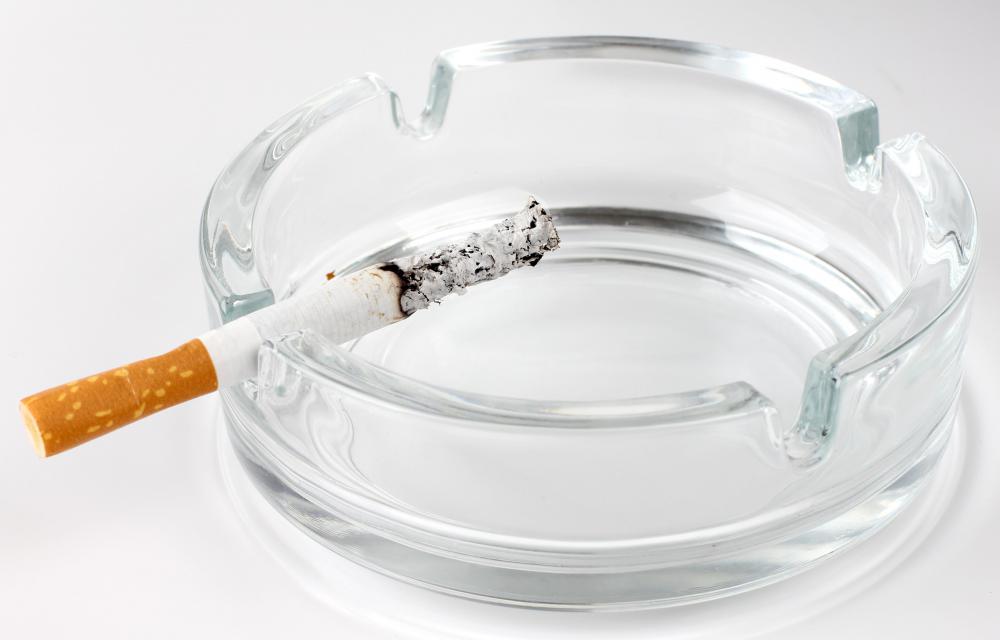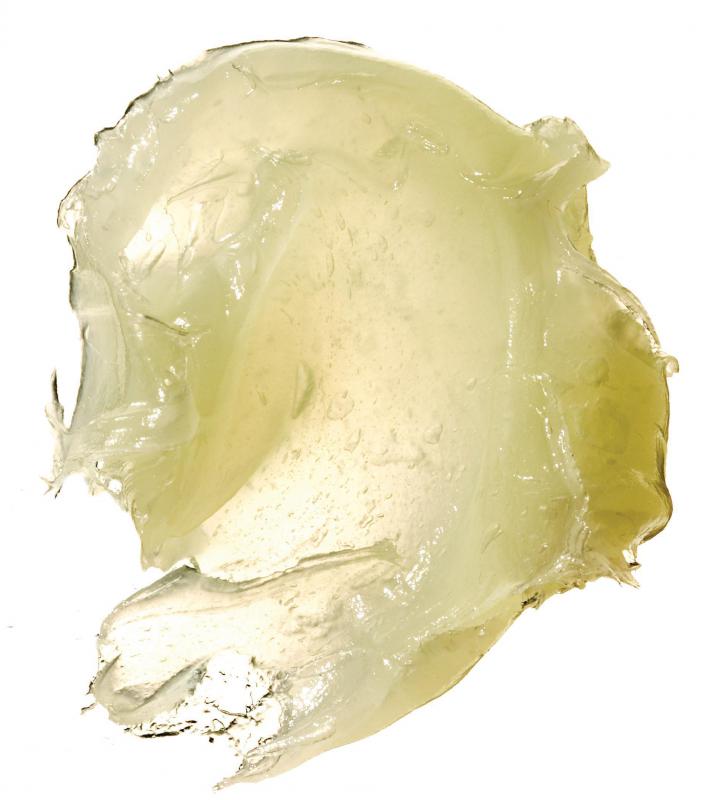At WiseGEEK, we're committed to delivering accurate, trustworthy information. Our expert-authored content is rigorously fact-checked and sourced from credible authorities. Discover how we uphold the highest standards in providing you with reliable knowledge.
What are the Risks of Handling Petroleum Products, Such As Auto Fuel?
Exposure to petroleum products like gasoline can affect the skin, eyes and respiratory tract. Petroleum tends to be most dangerous when its fumes are inhaled, but long-term exposure to the skin also carries risks.
If one regularly comes into skin contact with petroleum-based products, the best method for reducing exposure is to wear gloves. If one, for example, pumps gas for a living, wearing gloves can cut down on skin exposure.
Over time, handling of petroleum products may result in tissue death of the skin. One may develop a dry rash, or have cracked skin. If one is pumping fuel, then the best method to cut down risk is to wash hands immediately after pumping.

Petroleum products on the hands may also be transferred to the eyes, if one brings the hands in contact with the eyes. Eye exposure to petroleum may result in burns of the eyes, which can permanently affect sight. Washing hands directly after exposure is recommended to avoid this risk.
Washing hands after using petroleum products is valuable too, since those in the form of gasoline are flammable. If one is a smoker, and lights up a cigarette after pumping gas, there can be tragic consequences. The hands can easily catch fire when they have been exposed to petroleum.

In the form of petroleum jelly, like Vaseline, the petroleum present is thought to cause few risks to the skin. It can however, break down condoms and should never be used as a sexual lubricant. It may also contain impurities or other chemicals, which may cause skin damage after long-term use.
The primary risks of petroleum products are that it frequently contains other chemicals when processed that can be hazardous to the health. Thus many petroleum products like fuel can be risky to the health in the ways listed above.

The process of refining petroleum for use in other products has led, according to some environmental reports, to soil contamination, particularly with the chemicals used to refine petroleum. Environmentalists feel that such contamination may enter water supply and food sources, thus posing a health risk to all individuals. These statements are not proven. However, given previous findings on petroleum additives, it is safe to assume that one should exercise care, particularly around auto fuel and motor oil, and wash hands thoroughly after exposure.
AS FEATURED ON:
AS FEATURED ON:

















Discussion Comments
I want to know the health and safety issues while working at a petrol station.
I have worked at a gas station for the last 18 months. Sometimes I use gloves and sometimes not. I mostly come in contact with gasoline because we have only two pumps for diesel. I'm 26 years old and sometimes gasoline spills on my hand and many times I forgot to wash my hands -- because of us being busy. I just want to know if I'm at a high risk level of diseases. How can I test to see I have any problems with my health?
I'm wondering about gasoline soaked clothing being all over my body after a gas pump malfunctioned and covered my body, clothing, face and eyes. I flushed my eyes but the emergency room would not let me take off my clothing for over two hours. My eyes have scratches on the cornea (this was four days ago.) I'm on four medications for my eyes but I feel so tired.
@Babalaas- My opinion is nothing more than an educated guess, but I would assume that the lighter petroleum distillation products are more toxic in the short-term while the heavier distillation products are more toxic in the long-term. I would assume this to be true whether talking about human toxicity or ecological toxicity.
The lighter substances evaporate and dissipate much easier than the heavier substances, posing less of a long-term risk. For example, in an oil spill, the lighter hydrocarbons evaporate from the spill within days or weeks, while the heavier materials can linger for decades.
Heavier petroleum compounds are not as toxic in small doses, but prolonged exposure can be harmful. For example, spilling gasoline or diesel on your hands may result in a skin rash, but breathing in a large breathe of benzene can cause death. That being said, regular exposure to diesel or gasoline can cause cancer.
Are the risks of handling petroleum refinery products the same for all different compounds produced? In other words, are the heavier distillates like diesel and gasoline as toxic as the aromatic distillates?
I hope the new petroleum regulatory agency does a better job monitoring oil companies than the old Mineral Management Service. The Department of the Interior has been doing little to protect people and the environment from companies trying to cut corners, and I am not only talking about British Petroleum.
I read an article the other day about an unmonitored Exxon Oil pipeline that burst and dumped an undetermined amount of raw crude into the Yellowstone River in Montana. The amount was far from trivial, resulting in the evacuation of resident from the area. I can only the damage to the local ecosystem caused by this spill.
Yellowstone is a beautiful park, and any mining or pipeline operation in the park, or anywhere for that matter, should be monitored at all times. I am not advocating placing a person every 1000 yards to check for leaks, but a few pressure sensors installed along a pipeline could go a long way to alerting operators that there is a potentially catastrophic problem.
@anon71242- Breathing petroleum vapors can cause both long term and short-term effects. These effects occur when you breathe both refined and unrefined petroleum.
Short-term exposure to petroleum-based product like gasoline, diesel, and benzene can cause dizziness, nausea, vomiting, and sore throat. If enough fumes are inhaled, it can cause respiratory complications that can lead to lung damage, brain damage, or death. Most of the severe symptoms are related to huffing, or inhaling, these products to get a chemical high.
Inhaling petroleum fumes over an extended period, either due to occupational hazards or abuse can lead to a number of long-term health effects. Long-term exposure to petroleum products in air or water can lead to lung and nervous system damage. Certain chemicals like benzene (found in gasoline, cigarettes, detergents, and pesticides) have been found to cause leukemia.
Petroleum based chemicals can be quite toxic to the body, so it is always recommended one handle them with care.
I want to ask what is the risk of breathing the vapors of petroleum products?
Post your comments